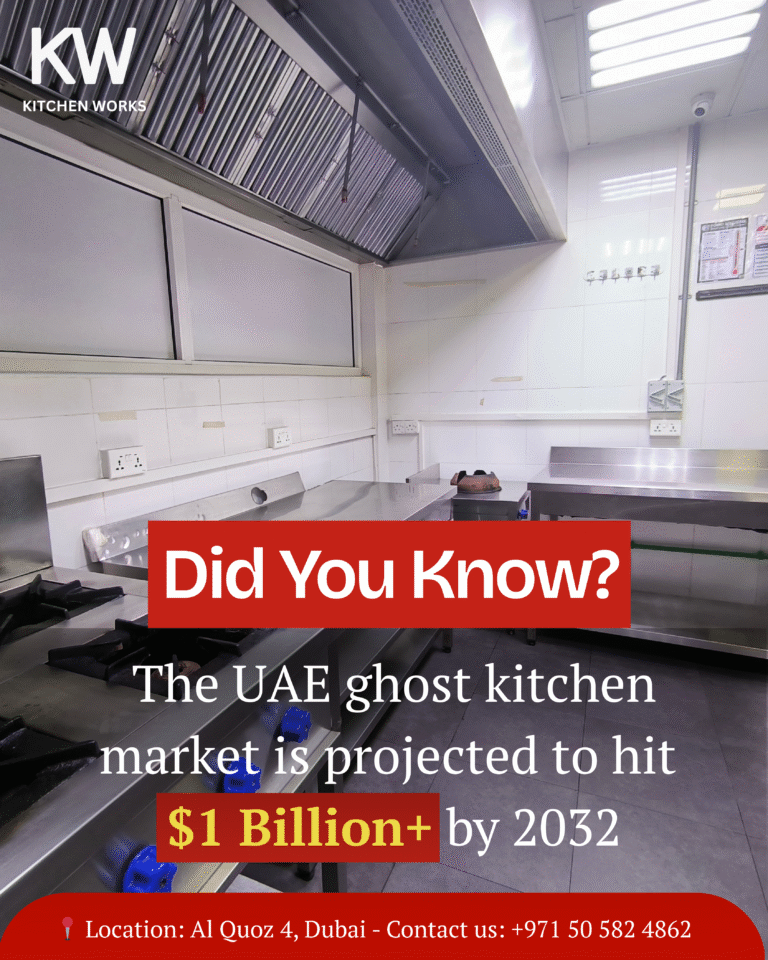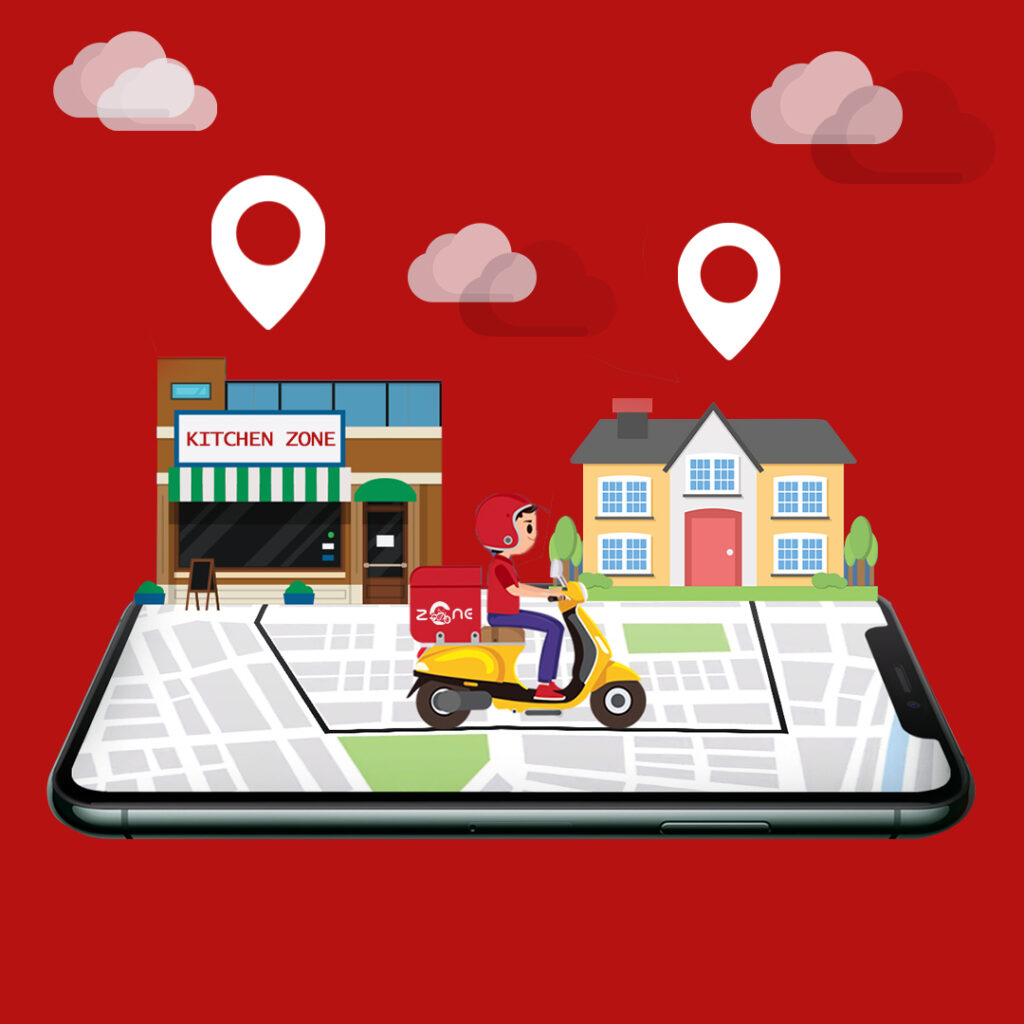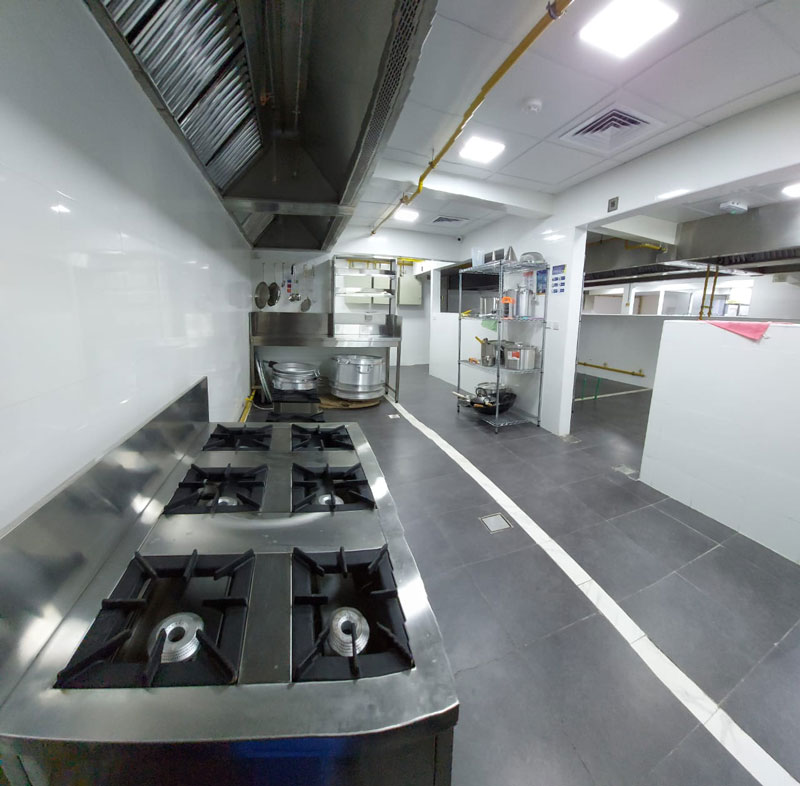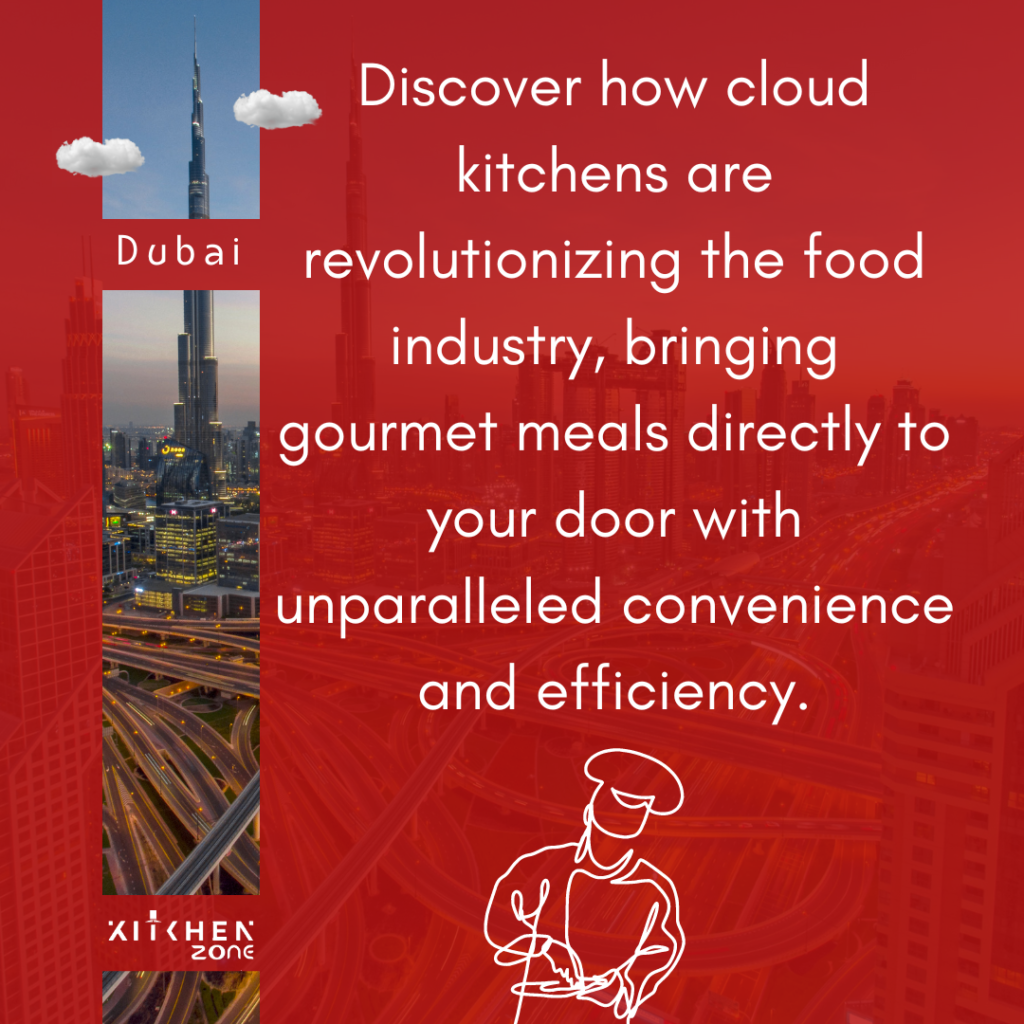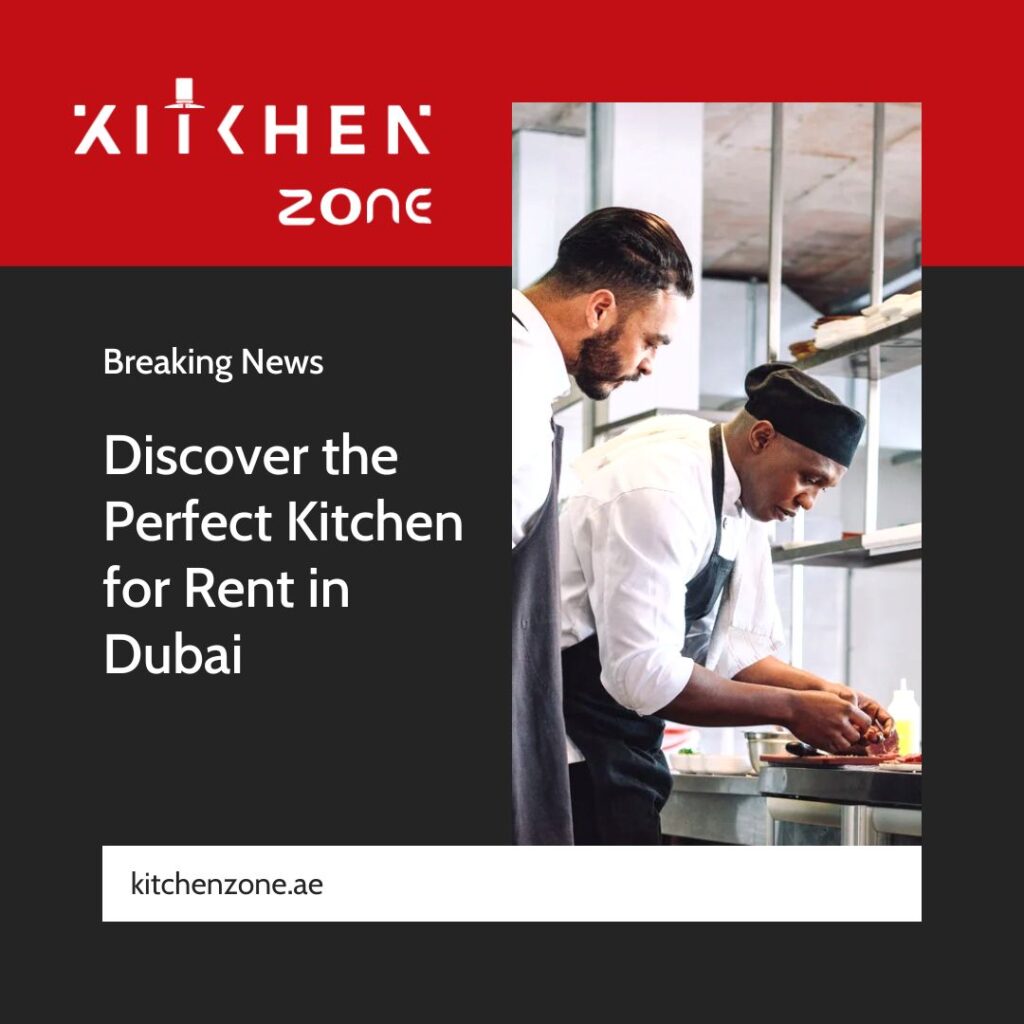Table of Contents
- Introduction
- What Are Ghost Kitchens?
- Market Overview: Ghost Kitchens in Dubai & UAE
- Benefits of Ghost Kitchens in Dubai
- Challenges & Drawbacks
- How to Start a Ghost Kitchen in Dubai: Step-by-Step Guide
- Legal, Licensing & Regulatory Considerations
- Future Trends & What to Expect
- FAQs
- Conclusion
Introduction
In a city famed for luxury, skyline marvels, and innovative business models, the food and beverage industry in Dubai is undergoing a quiet revolution: the rapid rise of ghost kitchens in Dubai. Also known as cloud kitchens, virtual kitchens, or dark kitchens, these are food preparation facilities focused solely on delivery and takeaway — no dining rooms, no front-of-house service. For entrepreneurs, restaurateurs, and food lovers alike, this model offers a powerful way to tap into changing consumer behaviours, benefit from lower overheads, and respond quickly to demand for convenience.
In this article, we’ll explore what ghost kitchens are, how the market is evolving in Dubai, benefits and challenges, how to start one, legal and financial considerations, case studies, FAQs, and what the future holds. Whether you’re considering launching your kitchen, investing in food tech, or simply curious about the innovation in Dubai’s F&B sector, this deep dive on ghost kitchens in Dubai will give you a comprehensive view.
What Are Ghost Kitchens?
Definition & Variants
Ghost kitchens (a.k.a. cloud kitchens or virtual kitchens) are food prep facilities with no dine-in option; they focus exclusively on delivery or takeaway orders. They may operate as shared kitchens (multiple brands under one roof), chain cloud kitchens, or independent ghost kitchens run by a single brand. Often they integrate tightly with delivery apps, third-party aggregators, online platforms, and digital marketing to reach customers.
Market Overview: Ghost Kitchens in Dubai & UAE
Market Size & Forecast
- The UAE ghost/dark/cloud kitchen market was valued around US$ 430 million in 2025 and is projected to reach over US$ 1,082 million by 2032, with a CAGR (Compound Annual Growth Rate) of approx 14.1%.
- Earlier, in 2023, the market size was estimated at US$ 330.3-330.5 million and forecasted to reach around US$ 821.5 million by 2030.
Number of Players & Kitchens:
There are over 400 cloud / ghost kitchen brands operating across about 80 kitchen locations in the UAE, many of them in Dubai.
Major Players
- Kitopi (HQ in Dubai) operating 60+ ghost kitchens in dubai preparing food for 100+ eateries and 200+ brands across several countries.
- Shared kitchens and local virtual kitchen operators also playing a role (e.g., Kitchen Works, etc.).
Drivers of Growth
- High demand for food delivery & convenience in busy city life.
- Technology adoption (apps, ordering platforms).
- Low overhead costs vs traditional restaurants (no dining area, fewer staff).
- Multicultural tastes & demand for variety of cuisines.
Benefits of Ghost Kitchens in Dubai
Here are key advantages for businesses and consumers alike:
| Stakeholder | Benefit |
|---|---|
| Entrepreneurs / Restaurateurs | Lower startup and operational costs; quicker time to market; easier scalability; ability to test new concepts/menus without a full-restaurant risk. |
| Consumers | More variety; faster delivery; often more affordable; ability to order from multiple “brands” from one kitchen group. |
| Investors / Stakeholders | Good growth potential; increasing margins; digital data & analytics enabling better optimization and decision making. |
Challenges & Drawbacks
Operating ghost kitchens in dubai isn’t without challenges. Some of the main obstacles are:
- High competition: many virtual kitchens are entering the market; differentiation is key.
- Delivery & logistics issues: delays, food quality during transport, packaging.
- Dependence on aggregators: high commission fees; losing some control over customer experience.
- Regulatory / licensing complexity: ensuring compliance with food safety, commercial kitchen licenses, licensing in Dubai.
- Real estate & location costs: getting a kitchen that is well-positioned for delivery but with affordable rents.
How to Start a Ghost Kitchen in Dubai: Step-by-Step Guide
Market Research & Concept Development
- Identify demand (cuisine types, consumer preferences, neighborhoods).
- Study competitor ghost/cloud kitchen brands in Dubai.
- Define your USP (unique selling proposition).
Business Plan & Financials
- Estimate setup costs: kitchen space, equipment, staffing, licensing.
- Operating costs: utilities, ingredients, packaging, delivery integration, marketing.
- Revenue model: direct delivery, third party aggregators, possibly subscriptions or partnerships.
Licensing & Legal Requirements
- Obtain necessary F&B licenses from Dubai Municipality / relevant regulatory body.
- Food safety and hygiene certifications.
- Trade license for commercial activity.
- Possibly inspections, health permits.
Location & Kitchen Setup
- Choose location with good access to delivery zones but manageable rent.
- Setup shared kitchen vs standalone kitchen.
- Infrastructure: cooking equipment, cold storage, packaging area.
Technology & Operations
- Order & delivery management systems.
- POS integration.
- Inventory management, forecasting, and quality control.
Menu Design & Packaging
- Menu items optimized for delivery (travels well, easy to package, maintains quality).
- Attractive, sustainable packaging.
Marketing & Customer Acquisition
- Use delivery platforms (Talabat, Deliveroo, Zomato, etc.).
- Digital marketing: social media, influencers, SEO, ads.
- Promotions & loyalty programs.
Monitoring & Scaling
- Track key performance metrics: order volume, delivery times, food cost, customer ratings.
- Feedback loops for improvement.
- Scale via opening more kitchen locations, adding brands, or moving into new zones.
Legal, Licensing & Regulatory Considerations
- F&B licensing via Dubai Municipality or other relevant authorities.
- Food safety standards (storage, handling, hygiene) must be met.
- Zoning: ensure the kitchen is in a zone permitted for commercial food operation.
- Employee permits & labor law compliance.
- Trade license & tax (if applicable), registration of company/business
Future Trends & What to Expect
- Sustainability & Packaging Innovation: More eco-friendly packaging, waste reduction.
- Technology Integration: AI for demand forecasting, automated kitchens, robotics, better logistics.
- Multi-brand kitchens: more shared kitchens housing many virtual brands.
- Expansion into suburbs / less-served areas to reach new markets.
- Health & Specialty Niches: vegan, organic, diet-specific, etc.
FAQs
Q1: What is the difference between a ghost kitchens in Dubai and a cloud kitchens in Dubai?
The terms are often used interchangeably. A cloud kitchen is similarly delivery-only. Ghost kitchens in Dubai emphasize the invisibility (no dine-in). Sometimes cloud kitchens can involve multiple brands under one roof.
Q2: How much does it cost to set up a ghost kitchen in Dubai?
Costs vary greatly depending on location, size, equipment, staffing and licensing. Setup cost can run into tens of thousands of USD/AED, with ongoing operational costs (rent, utilities, aggregation fees) that must be carefully budgeted.
Q3: How long does it take to launch ghost kitchens in Dubai?
Typically, from concept to launch could take a few weeks to a few months. Factors: licensing, equipment procurement, kitchen setup, hiring staff, onboarding on delivery platforms.
Q4: Which areas in Dubai are best suited for ghost kitchens?
Areas with dense residential zones, high demand for delivery, high smartphone penetration. Locations that are well connected to main roads and have manageable rent are ideal. Al Quoz industrial area is considered as the best zone for the cloud Kitchens in Dubai.
Q5: What are the major challenges for ghost kitchens in Dubai?
A: Competition; maintaining food quality during delivery; working with third party aggregators; regulatory compliance; packaging and customer service.
Q6: Can traditional restaurants convert part of their space into ghost kitchens or virtual brands?
A: Yes. Many restaurant owners are launching virtual brands using their existing kitchen facilities, focusing on delivery only, or using ghost kitchens to expand into areas where they don’t have physical restaurants.
Conclusion
Ghost kitchens in Dubai represent a fast-growing, high-potential segment of the F&B industry. They address modern consumers’ need for convenience, offer entrepreneurs lower entry barriers, and allow for rapid innovation and variety in food offerings. However, success in this space demands careful planning, strong operational discipline, smart marketing, and robust legal & licensing compliance.
If you’re a restaurateur looking to expand, an entrepreneur considering investing in food tech, or a chef with great ideas but limited capital, now is a great time to explore ghost kitchens in Dubai. With the market growing, technologies becoming more accessible, and consumer demand rising, there are substantial opportunities waiting.
Ready to take the first step? Begin with thorough market research, build a solid business plan, connect with kitchen-space providers, and tap into digital delivery platforms. If you need help mapping out your ghost kitchen strategy or finding a partner in Dubai, connect with Kitchen works.

